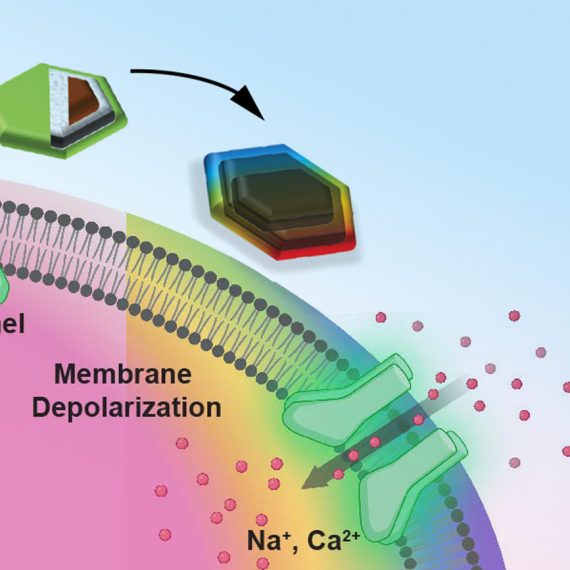Edward Boyden named inaugural Y. Eva Tan Professor in Neurotechnology
Neuroengineering leader appointed to new professorship at the McGovern Institute for Brain Research.

Edward S. Boyden, a member of MIT’s McGovern Institute for Brain Research and the Media Lab, and an associate professor of brain and cognitive sciences and biological engineering at MIT, has been appointed the inaugural Y. Eva Tan Professor in Neurotechnology. The new professorship has been established at the McGovern Institute by K. Lisa Yang in honor of her daughter Y. Eva Tan.
“We are thrilled Lisa has made a generous investment in neurotechnology and the McGovern Institute by creating this new chair,” says Robert Desimone, director of the McGovern Institute. “Ed’s body of work has already transformed neuroscience and biomedicine, and this chair will help his team to further develop revolutionary tools that will have a profound impact on research worldwide.”
In 2017, Yang co-founded the Hock E. Tan and K. Lisa Yang Center for Autism Research at the McGovern Institute. The center catalyzes interdisciplinary and cutting-edge research into the genetic, biological, and brain bases of autism spectrum disorders. In late 2017, Yang grew the center with the establishment of the endowed J. Douglas Tan Postdoctoral Research Fund, which supports talented postdocs in the lab of Poitras Professor of Neuroscience Guoping Feng.
“I am excited to further expand the Hock E. Tan and K. Lisa Yang Center for Autism Research and to support Ed and his team’s critical work,” says Yang. “Novel technology is the driving force behind much-needed breakthroughs in brain research — not just for individuals with autism, but for those living with all brain disorders. My daughter Eva and I are greatly pleased to recognize Ed’s talent and to contribute toward his future successes.”
Yang’s daughter agrees. “I’m so pleased this professorship will have a significant and lasting impact on MIT’s pioneering work in neurotechnology,” says Tan. “My family and I have always believed that advances in technology are what make all scientific progress possible, and I’m overjoyed that we can help enable amazing discoveries in the Boyden Lab through Ed’s appointment to this chair.”
Boyden has pioneered the development of many transformative technologies that image, record, and manipulate complex systems, including optogenetics, expansion microscopy, and robotic patch clamping. He has received numerous awards for this work, including the Breakthrough Prize in Life Sciences (2016), the BBVA Foundation Frontiers of Knowledge Award (2015), the Carnegie Prize in Mind and Body Sciences (2015), the Grete Lundbeck European Brain Prize (2013), and the Perl-UNC Neuroscience prize (2011). Boyden is an elected member of the American Academy of Arts and Sciences and the National Academy of Inventors.
“I deeply appreciate the honor that comes with being named the first Y. Eva Tan Professor in Neurotechnology,” says Boyden. “This is a tremendous recognition of not only my team’s work, but the groundbreaking impact of the neurotechnology field.”
Boyden joined MIT in 2007 as an assistant professor at the Media Lab, and later was appointed as a joint professor in the departments of Brain and Cognitive Sciences and Biological Engineering and an investigator in the McGovern Institute. In 2011, he was named the Benesse Career Development Professor, and in 2013 he was awarded the AT&T Career Development Professorship. Seven years after arriving at MIT, he was awarded tenure. Boyden earned his BS and MEng from MIT in 1999 and his PhD in Neuroscience from Stanford University in 2005.




